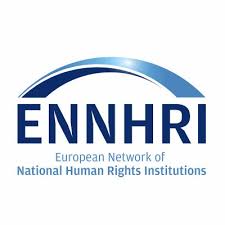
Who we are
This page looks at the Office of the Ombudsman as an institution, what our role is, and who the Ombudsman is.
On this page
Our Role
 The Parliamentary Ombudsman is an independent and autonomous Officer of Parliament who is, according to law, empowered to investigate complaints regarding maladministration by the Government and the public sector in general. Therefore, the Office of the Parliamentary Ombudsman is completely separate from the Government and the public sector in general.
The Parliamentary Ombudsman is an independent and autonomous Officer of Parliament who is, according to law, empowered to investigate complaints regarding maladministration by the Government and the public sector in general. Therefore, the Office of the Parliamentary Ombudsman is completely separate from the Government and the public sector in general.
The grievances that persons submit as written complaints concern acts or omissions caused by matters such as injustice and improper discrimination.
By persons, we mean everyone without distinction of any sort. We assist all persons, including natural persons and organisations such as companies, NGOs, and foundations.
We strongly champion good and proper public administration.
Where matters of public interest so require, we commence our own initiative investigations, that is, in cases where no person actually files a specific written complaint.
We do our very best to conclude investigations of this nature as soon as possible, on the understanding that not all cases are the same, and therefore, each case has to be approached and handled on its own merits. Our firm commitment is reaching a fair and complete conclusion within a reasonable time.
All must rest assured that the investigative process is secret and protected by law, meaning not just confidential but truly secret.
For the Office, a discreet approach is a paramount consideration.
For the peace of mind of all, the services given by the Ombudsman are free of charge in the most absolute manner whatsoever, meaning that there are no hidden charges anywhere.
Our Mission
Apart from the investigative function, our mission includes fostering a public service culture marked by fairness, dedication, commitment, transparency, and accountability and promoting the right to good public administration in domestic affairs.
In our investigations, we look for public service acts or omissions that result from maladministration and abuse of power.
When we encourage a better quality of service from the public administration, we also strive to improve laws and administrative practices that could contribute to injustice and hardship.
Our Commitment

We are committed to comforting persons who have sustained unfair treatment and breaches of their rights by public authorities.
Persons must know they have a right to complain.
We also investigate on our own initiative where necessary and when the public interest is required.
We carefully review complaints about public administration conduct to ensure that standards of fairness and justice are maintained and reaffirmed.
A vital part of our work is cultivating stronger working relations with the Government and the rest of the public sector.
Our approach is to manage complaints possibly in a non-confrontational manner, with impartiality, and conclude within a reasonable time, depending on the subject matter of the complaint, without unnecessary complexity.
We make fair and unbiased decisions, free from external influence, and propose solutions to correct the resulting injustices.
We also guide public officials on how to improve their services, thereby reducing complaints and finding solutions to broader problems.
The Parliamentary Ombudsman
The Commissioners



The Commissioners for Administrative Investigations
The three specialised Commissioners appointed within the Office of the Parliamentary Ombudsman give their full attention to issues related to health, environment and planning, and education.
Although they operate independently when investigating complaints related to their areas of specialisation, they are fully integrated into the broader structure of the Office of the Parliamentary Ombudsman for all other purposes. If you have a complaint related to health, environment and planning, or education, you should still direct it to the Parliamentary Ombudsman as the Ombudsman has the legal authority to assign these complaints to the appropriate Commissioner.
Read commissioner biosPast Ombudsmen
The Office of the Ombudsman in Malta was established in 1995 under the Ombudsman Act. Since its creation, three distinguished individuals have served as Ombudsmen, each contributing to the development and impact of this independent institution.
Read the Past Ombudsmen Bio
Networks

The International Ombudsman Institute (IOI), founded in 1978, is an international organization for cooperation of more than 150 offices of Ombudsmen. In addition to its periodic conferences, the IOI encourages the exchange of information on regional and international levels.
The main goal of the IOI was the facilitation of communication between all members, in order to be a real discussion forum open to the world and dedicated to mediation.

The Association of Mediterranean Ombudsmen was created on December 19th, 2008 in Marseille.
The AOM includes ombudsmen, mediators, institutions and organizations dedicated to the promotion and protection of Human Rights from the Mediterranean region. The association and its members involve themselves to promote and defend democracy, the rule of law and social peace in the Mediterranean area and to enforce national and international human rights laws, including the Universal Declaration of Human Rights of December 10th, 1948 and the Rabat Declaration of November 10th, 2007.

National and regional ombudsmen throughout the EU make a vital contribution to ensuring that citizens and residents enjoy their rights under EU law. The ombudsmen deal with complaints against national, regional, and local public authorities in the Member States.
The European Network of Ombudsmen consists of over 99 offices in 35 European countries. The Network includes the national and regional ombudsmen and similar bodies of the Member States of the European Union, the candidate countries for EU membership, and certain other European countries, as well as the European Ombudsman and the Committee on Petitions of the European Parliament.

The European Ombudsman is an independent and impartial body that holds the EU administration to account. The Ombudsman investigates complaints about maladministration in EU institutions, bodies, offices, and agencies.
Only the Court of Justice of the European Union, acting in its judicial capacity, falls outside the Ombudsman’s mandate. The Ombudsman may find maladministration if an institution fails to respect fundamental rights, legal rules or principles, or the principles of good administration.

The European Network of National Human Rights Institutions (ENNHRI) brings together over 40 National Human Rights Institutions (NHRIs) across Europe to advance the promotion and protection of human rights. As an essential platform for collaboration, ENNHRI enables these independent, state-mandated bodies—ranging from ombuds institutions to human rights commissions and institutes—to collectively address regional human rights challenges and engage with European institutions.
Related Links
Please Wait
Processing
Operation Completed
